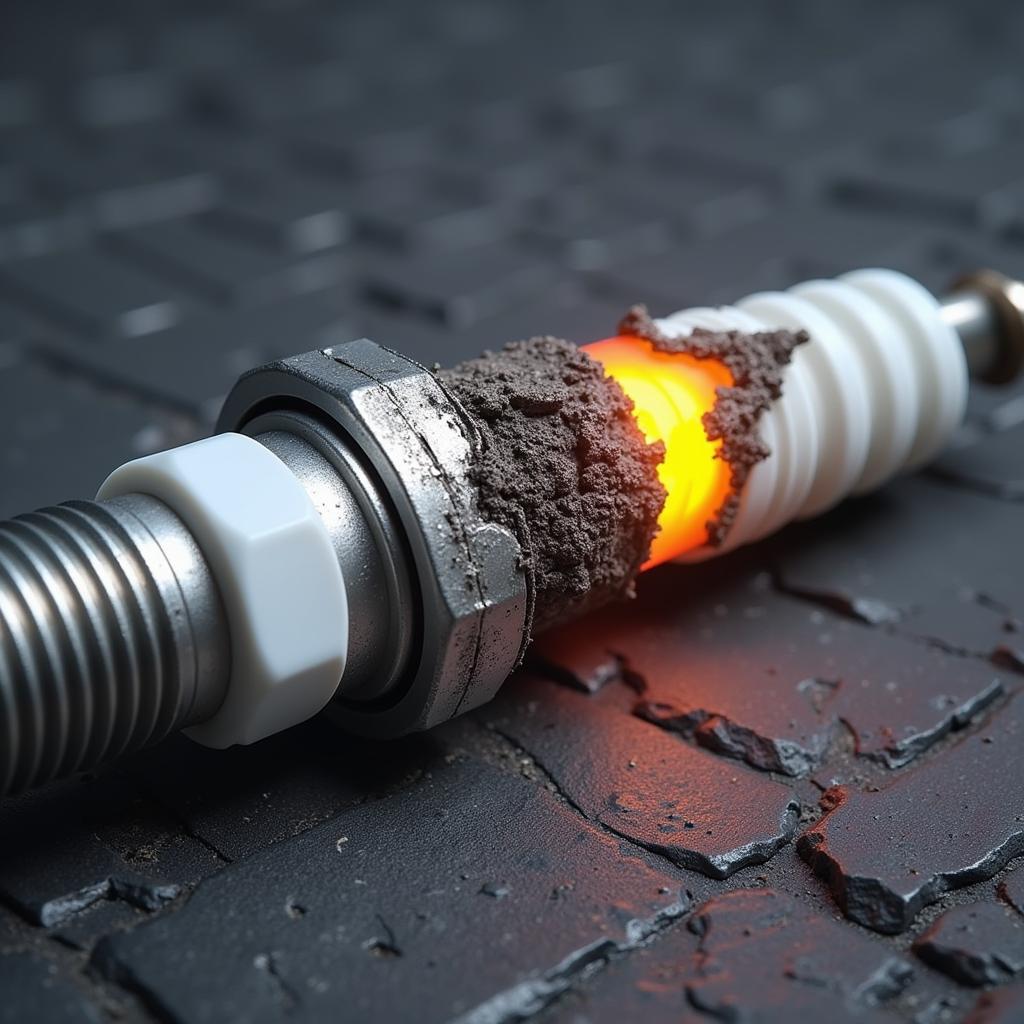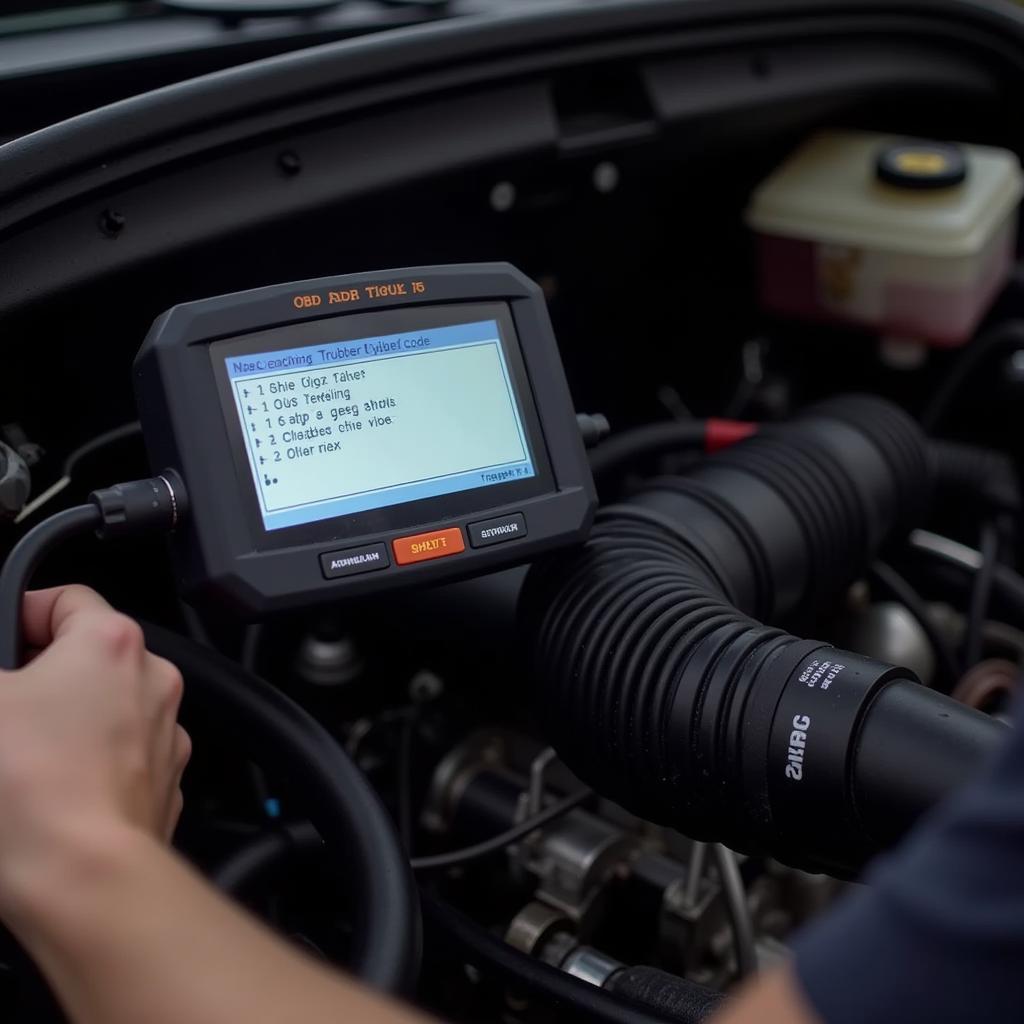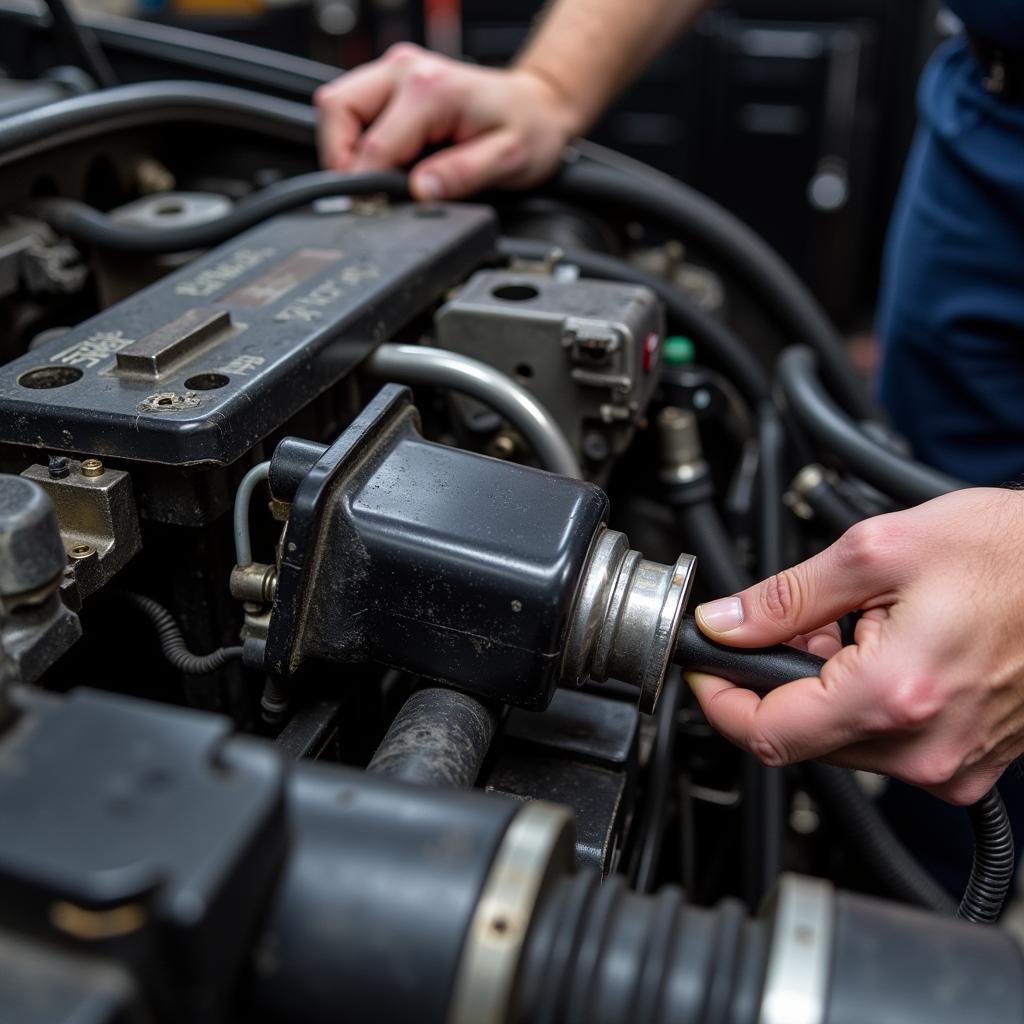Car Problems Cylinder Misfire can be a frustrating and potentially damaging issue for any car owner. A misfire occurs when one or more of your engine’s cylinders fails to ignite properly, leading to a loss of power, rough idling, and increased emissions. Understanding the causes, symptoms, and solutions for a cylinder misfire can save you time, money, and potential engine damage.
A cylinder misfire can stem from various issues, ranging from a simple spark plug problem to more complex issues like a faulty fuel injector or a compression leak. Identifying the root cause requires a systematic approach, combining visual inspections with diagnostic tools and tests. This guide provides a comprehensive overview of cylinder misfires, helping you understand, diagnose, and fix this common car problem. After reading through this guide, similar to most common car engine problems, you’ll be better equipped to tackle this issue.
What Causes a Car Problems Cylinder Misfire?
Several culprits can contribute to a cylinder misfire. The most common causes include:
- Faulty Spark Plugs: Worn or damaged spark plugs can fail to create the spark needed for ignition.
- Bad Ignition Coils: These coils provide the high voltage needed for the spark plugs. A faulty coil can disrupt the ignition process.
- Vacuum Leaks: Leaks in the intake manifold or vacuum hoses can disrupt the air-fuel mixture, leading to misfires.
- Fuel Injector Problems: Clogged or malfunctioning fuel injectors can disrupt the proper delivery of fuel to the cylinders.
- Low Compression: Low compression in a cylinder can prevent the fuel-air mixture from igniting properly. This is often related to issues with piston rings, valves, or head gasket.
- Sensor Issues: Malfunctioning sensors, such as the crankshaft position sensor or mass airflow sensor, can provide incorrect information to the engine control unit (ECU), leading to misfires.
Recognizing the Symptoms of a Cylinder Misfire
A cylinder misfire often manifests itself through several noticeable symptoms:
- Rough Idling: The engine may shake or vibrate excessively while idling.
- Loss of Power: You may notice a decrease in acceleration and overall engine performance.
- Increased Fuel Consumption: A misfiring engine burns fuel less efficiently, resulting in reduced fuel economy.
- Check Engine Light: The check engine light on your dashboard will likely illuminate. Retrieving the diagnostic trouble code (DTC) with an OBD-II scanner can pinpoint the affected cylinder.
- Engine Hesitation: The engine may hesitate or stumble during acceleration.
- Strange Exhaust Smells: A misfire can cause a strong fuel smell from the exhaust.
 Spark Plug Showing Signs of Wear and Tear Leading to Cylinder Misfire
Spark Plug Showing Signs of Wear and Tear Leading to Cylinder Misfire
Diagnosing a Car Problems Cylinder Misfire
Diagnosing a cylinder misfire typically involves the following steps:
- Check Engine Light and DTC: Read the diagnostic trouble codes (DTCs) stored in the engine control unit (ECU) using an OBD-II scanner. Codes like P0300 (random misfire) or P030x (misfire in cylinder x) can indicate a misfire problem.
- Visual Inspection: Inspect the spark plugs, ignition coils, and wiring for visible damage or wear. Look for cracks, burns, or loose connections.
- Spark Plug Test: Remove the spark plugs and inspect them for signs of wear, fouling, or damage. A spark plug tester can be used to verify their functionality.
- Compression Test: Perform a compression test on each cylinder to measure the pressure within the cylinder during the compression stroke. Low compression in one or more cylinders can indicate a more serious engine problem.
- Fuel Injector Test: Check the fuel injectors for proper operation. This can be done by listening for a clicking sound with a stethoscope or by using a fuel pressure gauge.
- Vacuum Leak Test: Check for vacuum leaks in the intake manifold and vacuum hoses using a smoke machine or a carburetor cleaner spray.
Just like when you’re trying to diagnose car problems reviews, a systematic approach is crucial for accurate diagnosis.
 Using an OBD-II Scanner to Diagnose a Cylinder Misfire
Using an OBD-II Scanner to Diagnose a Cylinder Misfire
Fixing a Car Problems Cylinder Misfire
The solution to a cylinder misfire depends on the underlying cause:
- Replace Faulty Spark Plugs: If the spark plugs are worn or damaged, replace them with new ones.
- Replace Bad Ignition Coils: If an ignition coil is faulty, replace it with a new one.
- Repair Vacuum Leaks: Seal or replace any leaking vacuum hoses or intake manifold gaskets.
- Clean or Replace Fuel Injectors: Clean clogged fuel injectors using a fuel injector cleaner or replace them if they are malfunctioning.
- Address Low Compression Issues: If a compression test reveals low compression, further diagnosis is needed to determine the cause and necessary repairs, which may involve replacing piston rings, valves, or even the head gasket. This is similar to addressing a missing problem in car where a comprehensive approach is required.
How to Prevent Car Problems Cylinder Misfire?
Regular maintenance is key to preventing cylinder misfires:
- Regular Tune-Ups: Schedule regular tune-ups that include spark plug replacement and other essential maintenance procedures.
- Quality Fuel: Use high-quality fuel to prevent fuel system contamination.
- Check for Vacuum Leaks: Regularly inspect vacuum hoses and connections for leaks.
- Address Engine Warning Lights Promptly: Don’t ignore the check engine light. Addressing issues early can prevent more serious problems.
 Mechanic Replacing a Faulty Ignition Coil
Mechanic Replacing a Faulty Ignition Coil
“Regular maintenance, including spark plug and ignition coil replacements, is crucial for preventing misfires and ensuring optimal engine performance,” says John Smith, a certified automotive technician with over 20 years of experience.
Conclusion
Car problems cylinder misfire can be a sign of a minor issue or a more serious underlying problem. By understanding the causes, symptoms, and diagnostic procedures, you can effectively address this issue and prevent potential engine damage. Regular maintenance and prompt attention to warning signs are crucial for keeping your car running smoothly and preventing costly repairs down the road. For more information on fuel-related issues, you can refer to this resource on car wont start fuel problems. Don’t hesitate to connect with AutoTipPro at +1 (641) 206-8880 or visit our office at 500 N St Mary’s St, San Antonio, TX 78205, United States for further assistance and expert advice regarding your car problems cylinder misfire.
“Addressing a misfire promptly can save you from more expensive repairs later on,” adds John Smith. “Ignoring it could lead to catalytic converter damage or other serious engine issues.” For further insights into engine-related problems, particularly with Hyundai vehicles, you might find this resource helpful: hyundai car engine problems.




Leave a Reply